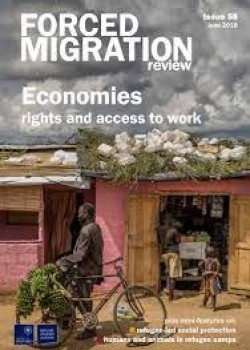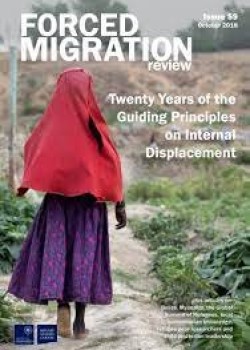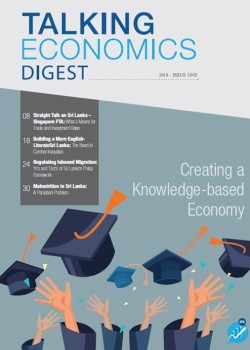Lanka Monthly Digest (LMD)
Debt Balloon in the North. Private Sector Interventions can Reduce Indebtedness in the North
Publisher: Media Services (Pvt.) Ltd
Place of Publish: Sri Lanka, Colombo
Year: 2014
Page Numbers: 95
Series: 14-Nov
Acc. No: 368-J
Category: Journals
Subjects: Adult Education
Languages: English
This issue of the LMD magazine carries an article by CEPA titled “Debt Balloon in the North”. According to information compiled by the UN Habitat, the 26-year-long conflict in Sri Lanka has caused the destruction of close upon 140,000 houses in the north and east of the country. The Government of Sri Lanka, together with numerous donors - i.e. the Indian Government, European Union, Red Cross and Swiss Agency for Development and Cooperation - is assisting families to rebuild their houses. A 2014 study conducted by CEPA found that the actual cost of construction tends to be higher than the sum projected originally. Some of these costs can be avoided - such as those incurred in trying to build houses that are larger than prescribed, so that they conform to astrological concerns (for instance, the prescribed length of 23 feet is considered unlucky, according to vastu); roofs that do not conform to the prescribed design; and the use of higher quality wood than that prescribed for doors and windows. The growing supply of credit, following the end of the war in mid May 2009 and the overt competition amongst financial institutions, has increased debt levels among households in the north, as have additional borrowings to service house building, thereby extending the indebtedness of households. The article recommends that the involvement of the private sector would improve the quality of life of people in the north, especially those in the Wanni. Assistance for housing construction, in addition to donor support, will reduce the loans procured by housing beneficiaries, and also their vulnerability.In addition, investment in productive facilities and training in income-generating activities are likely to provide the people in these areas with a sustainable means of improving their families' finances, increasing savings and most importantly, their living standards.



